
by HMICHAEL | Jul 12, 2015 | Love and Romance, Words Etc |

Similar to Her, my first one-sentence stream written a year before this one, Catch and Release brought out from me another spontaneous flow of words about, well…okay…yes…another woman.
I remember this one being more practiced, as a second to an original always is. Still, I liked feeling spurred enough to do it. It was not quite as effortless as the first, but it was close enough. I remembered her name this time. Maybe because we went just enough further that she stuck in my head.
Cara wasn’t the original stream girl. That honor goes to Lady M. But I don’t see another stream coming again for anyone else. Cara closed the bookends, and for that, she deserves just as much attention.
One sentence.
He meets the American who’s been japanized, living the better part of seven years in Tokyo as a successfully recorded pop singer, and doing an Americanized radio DJ gig on the side, now deciding to return to America because she can’t stand the loathsome role of women in Japan and started turning into a Japanese thinker unconsciuosly because most of the men have affairs anyway which she slowly started to accept but inside really rejected, but she did sell alot of records and liked being famous even if it was across the globe but still was happy to be sitting with him, a typical but classic and harmlessly unpredictable American male who wouldn’t think twice about planting an unexpected kiss on her small and very appealling asian-like lips that had the nicest heart-shape and cushiony feel, even though it took more than one try after the two martinis and bottle of wine they shared because she’s totally unused to having a man show any public display of affection because in Japan the men wait until the very last minute to make any move whatsoever, usually in a cab, and then proposition the women to a “love hotel” which serves as neutral ground and preserves the privacy away from the very thin walls that most apartment dwellers contend with in Japan, and besides, Japanese men live a lie anyway because they have a wife at home waiting while they’re out carousing, perhaps with the likes of Cara, his date, who almost decided to play the game but then said No, and came back to Philadelphia where she could take him out and impress him with her totally fluent Japanese to the Sushi waitress who was explaining to them the slightly-seared sushi dish that he was trying to order last Saturday but couldn’t describe because he didn’t speak “the language,” and went on to say that this seared-one-side sushi, which is Bonito, not Tuna, is not found in many restaurants because it has to be so fresh, but he really doesn’t care anymore because he’s already trying to figure out how much further he can get in public in this corner table which has just enough room for two coffees and a dish of green tea ice-cream, where the only other people are this chain smoking platonic couple who totally don’t care, and when the adorably cute giggling twenty-something waitress leaves, he makes another move on those little heart shapes which now generously accept his advance, until she catches his hands, that have wandered just the slightest bit up the sides of her waist so the top of his thumb barely brushed the lower part of her right breast, which he suddenly realized was quite large, and she puts her two hands on his and gently but firmly halts any progress, intentional or accidental, and says, “okay, that’s far enough, and yes, they are real”, and “I think it’s time for you to be going home now,” because she knows that at Twelve Thirty AM, being two hours from home he could make an excellent case for rearranging their plans to include an American version of a love hotel in downtown Philadelphia, but would still probably regret it in the morning because he’d wake up and realize that even though she had nice breasts, pillowy lips, graduated Harvard, and spoke sushi, she was not the fish for him.
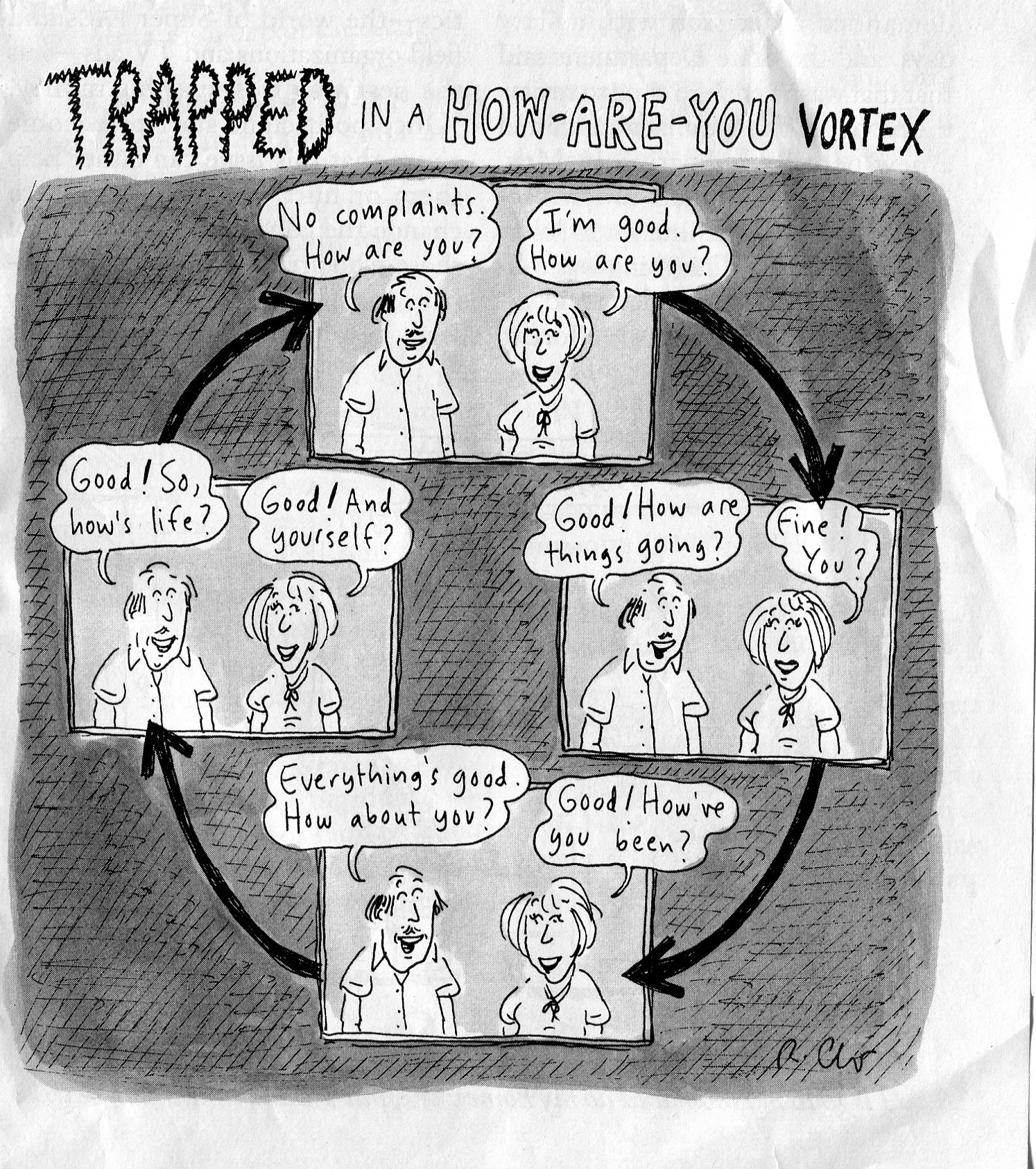
by HMICHAEL | Oct 12, 2014 | Cartoons |

by HMICHAEL | Aug 2, 2014 | Love and Romance, Words Etc |

Further back than I care to accept, before I moved out of NYC, but right on the cusp of my exit to supposed greener pastures, I pulled into a gas station in the Bronx community of Riverdale.
I just stood there watching her walk back to the pump, as I filled my tank. I wasn’t prepared for the paralysis, nor the seductive irony of her baseball cap with a giant generic M on it, as it coincided with my decision just weeks earlier to switch to my middle name in mid life.
The rest is hard to describe in ordinary terms, which is why I wrote the following run-on sentence later that week after we met for dinner. It just flowed out of me. There was just no end to it.
A day or two later, I presented her with this thing. It left her speechless. Just like I planned. 😉
She deserved it. Not because she did anything special, but because anyone who brings passion and creativity out of someone else deserves to know about it. People have power over one another. It’s not always deliberate. It’s sometimes by accident.
I can’t quite remember her name, Mara? Meg? But, I remember…her.
One sentence.
Suddenly my mind lost direction, and lapsed back to that gas station, watching her pull the baseball cap off with the giant M on it, and shake that incredible head of hair in the brightest of sun lights, while waiting for her tank to be filled and coffee to arrive, but maybe sneaking a quick peek at this guy standing across the other lane, wondering if he’s looking, thinking that he is, and then, knowing that he is, so when she smiled and said hello she was totally prepared, as he comes over, probably to do his charmer routine, because that usually works and she likes it anyway, besides, he’s wearing denim and guys in denim usually know what they want, even if they act like they don’t, but she’s in one of her moods anyway, because its a brilliant day and coffee’s coming, the country’s ahead, and hey, he smiled, so what’s a girl to do but shake her head in the sun, smile back, and almost take him away with her, even though when they finally get to where they’re going she may have to run off for her four-mile ritual, which isn’t all that bad, because he can stay behind and make some kind of home cooked meal that she’d transform into a fire insurance claim anyway, so it just happens to work out perfectly, until she lands back to earth for that moment as the man from the deli kisses her cheek and breaks the spell, but she’s already decided she’ll try this guy somehow, for something, so she gives him her name and lets the gods take over, which really isn’t bad, because it’s so much easier that way since they’ve been through this since time began and are more than happy to take over and let her be on her way to the country totally alone, which is absolutely the coolest because that’s when her best inner work gets done, her deepest thoughts come out; her brain unwinds; her body relaxes; she’ll stretch the widest; reach the farthest, and its great because she knows he’ll call her, unless he’s blind and stupid, which he’s not, because he wears denim, and then, he does the charmer routine again, and the flowers smell great, because he knows it works and she’ll like it anyway, because romance and passion are fun if they are nothing else, and that’s all that matters if you think about it, because all that other serious stuff the gods can’t handle alone unless the timing’s just right, and no one knows that right off anyway, so she kicks back and relaxes because she does want to go out, and it’s an excellent idea to cozy up in that hip little restaurant she likes, where they can check each other out, which he definitely does, and soon enough finds himself swimming in her luxurious hair and hypnotically wrapped into her curving smile, which the gods seem to relish in tempting him with, as he struggles to concentrate on an intellectual point; the human condition; and a medium rare tuna steak; all of which pale in comparison to her traffic stopping beauty that sits irresistibly close to him, gazing just barely behind his eyes so he can maintain his concentration while still entranced by the way she pushes her hair, crosses her legs, and picks at the zucchini, and still he’s able to hear her voice, which hooks his ears like a song he’d play over and over because he loved the bass track, which only deepens his sudden desire of returning to the big town for more than an occasional visit, until he lands back to earth for that moment as the table one over encroaches their space and breaks the spell, but he’s already decided that she’s in his system just enough to interfere with the nerve endings that allow him to shave without nicking himself, and so, he says it was fun, kisses her cheek, and quietly deposits her eyes and lips in the little front pocket of his denims, knowing that the gods have been here since time began and are more than happy to take over.
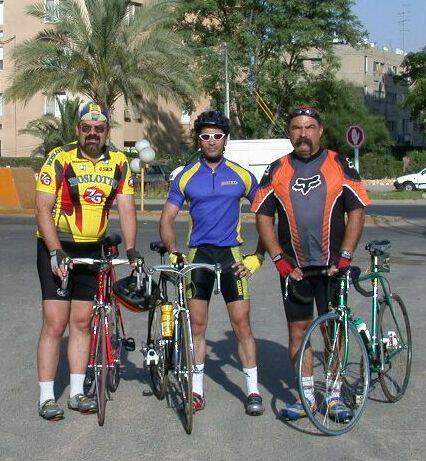
by HMICHAEL | Jul 21, 2014 | Athletic Culture, Sports & Fitness |

Used to be I was happy to take a walk along a path away from cars and smelly, noisy, dangerous street traffic. Nowadays? Not so much.
I’ve written here about deranged drivers of cars and trucks on the roads and highways. Now its time to draw a comparison to other kinds of drivers. Specifically, people on bikes, bicycles. Or, as those who must observe the new stylish market-centric vernacular refer to, cyclists.
Cyclists are not all the same. In fact, barring the altogether separately cultured, and commercially tooled bike messenger, there are really two fairly distinct groups of cyclists. Those who ride for fun, recreation, and leisure, and those who ride for fitness and/or competition. Its this second group I have a beef with. Those who ride road bikes.
Ever since Lance Armstrong, the Tour De France, and the oh-so-exploitive marketing forces behind the ever lighter, ever aerodynamically conceived, ever inflated priced road bikes came together in a synergistic harmony, cycling athletes in this country have been consumed in the spirit and flesh of cycling OCD.
Ok, that’s fine. Whatever you need to lose yourself in. Just don’t hurt anybody. Right? WRONG!
I don’t know what part of the mind is responsible for it, but the behavior of road bikers in my area (Hamden and New Haven, CT), seem to be missing a component of safety best practice that any (ok. most.) car driver would have instinctively. The part of the brain that tells people in front of them, they are coming up besides them and will be passing. Yes, its easier in a car because the assumption is that the driver in front has a rear view mirror they use. But, with a pedestrian, or another cyclist, there is never a rear view mirror. And, btw, nor should there be! The onus on bikers and walkers, is on the one behind. Not the one in front. Therefore, the best practice, the safe practice is to call out “On your left!”, “Left side!” and so on.

Admittedly, this image is unrelated context, but the sentiment of many cyclists, is that anyone not of their breed is in their way, and WE need to yield to THEM. The definition of arrogance.
They are consumed and focused on asphalt, concrete, gear shifting, weight distribution, how they look in their pompous outfits, status driven helmet and shoe choices, and whatever else they can’t bear to tear themselves away from to alert those in front they are coming up behind. For lack of another explanation as to why they ignore common courtesy towards others on the bike and jogging paths, they seem to act as if they are better than others who don’t belong to the same religion as they do. Shelling out thousands of dollars on equipment and clothing to mimic the real professionals who race as a lifelong career. They seem to act like they should have the priority. That it is everyone else who should yield to them. Everyone else that should be looking back constantly over their shoulders because there will be no warning when they come up behind you six inches away from catastrophe.

Effeminate, testicularly challenged clowns.
Any and all cyclist associations and bike clubs have rules of the road printed out for their members. They are often printed on signs at trail heads and along the way. The common courtesy of hailing from behind, is well ingrained in the book of good behavior. Unfortunately, most of the cyclists who need to do it the most, don’t. They are an embarrassing, selfish, arrogant bunch of goofballs. They are a scourge on peaceful walks, relaxing bike rides, and completely upset the karmic balance of nature. Yeccch!
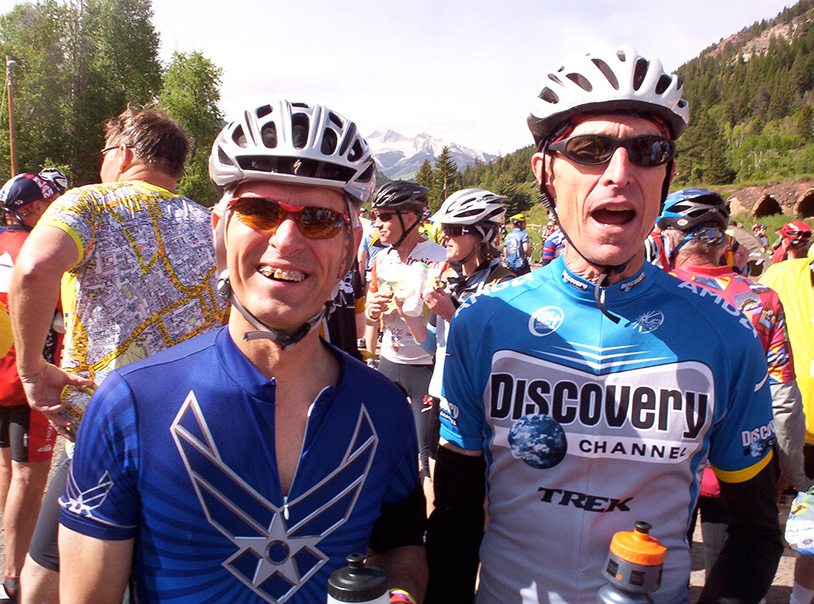
A scourge in helmets and spandex on the countryside.
Here are some sympathizing links:
http://www.rockymountainnews.com/news/2008/jun/19/most-fellow-cyclists-rude-arrogant-jerks/
http://theselfhatingcyclist.wordpress.com/tag/wankers/
http://www.freerepublic.com/focus/chat/2033728/posts
by HMICHAEL | Jun 6, 2014 | Athletic Culture, Sports & Fitness |
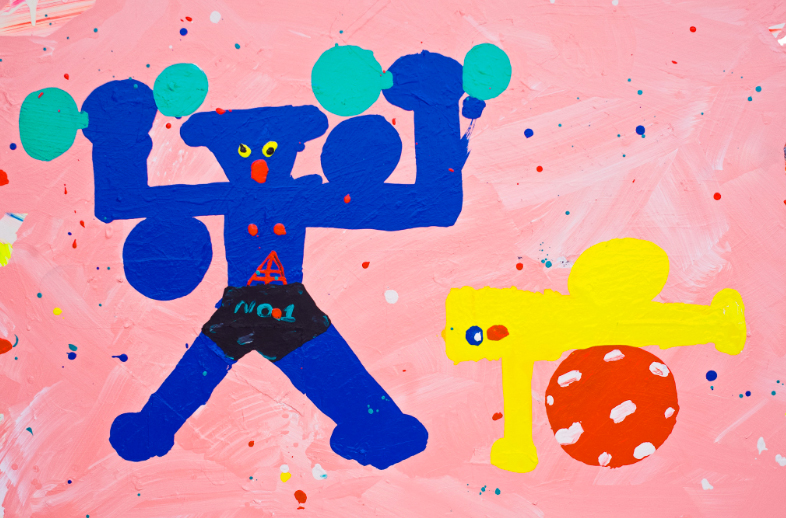
Are you tired of reading anti-exercise philosophy articles? Here’s an anti-anti-exercise philosophy article.
I’ve written here before about my own view on exercise fanaticism. Not that there isn’t enough around elsewhere. I’ve decided that people who flame the type A fitness addicts, have inadvertently encouraged them to increase their compulsive focus on running seven miles a day, riding road bikes till their prostate is crushed, donning the pompous outfits in bizarre idolatry of French athletes, climbing every known precipice, building muscle till it resembles an off road bike path.
As much as I started liking this recent article in the NY Times, I ended up not liking it also. I like it because it drew conclusions that support the idea of an over zealous culture on fitness, athletically, scientifically, and commercially. That’s well worth expounding on, but still, in the end, its a four column 1/2 broadsheet article on the topic. Well, maybe this corks the dam a little. How much more can we talk about this stuff? Don’t answer that.
Read the article>
by HMICHAEL | Jun 1, 2014 | Love and Romance, Words Etc |

So, I tell you this. You tell me that. We meet, share a table, smile, laugh, flirt, go to the movies, say good night, share another table, watch the sunset, kiss, have sex, have breakfast, and presto, we have someone who gives a damn for some indeterminate period of time about our existence. Only…PHONO NEEDLE SCREECH!!! It ‘aint that easy.
I am not quite old enough yet to bury the dream of once again feeling a knowing touch on my tum tum, kisses on my boo boo, and the gaze of adoration into my paralyzed eyes.
(Are they really paralyzed eyes? No. not really. You see, when I stare at the computer too long, my eyes become fixed, stop blinking and tear less. This is triggered by a complex group of factors related to horizontal and vertical axis, dot pitch, aspect ratio, and refresh rate.)
There are a lot of reasons why I wouldn’t have to be here in another life. I would already have you sitting next to me sharing some Bordeaux, stroking the glass with your finger tips. We would already have reminisced about the drive through Ontario and our stay in Algonquin, the walks in Paris, the eating in Tuscany, the hikes in the Canyon, the glaciers in Alaska, the walks in Paris, the cobblestones of Seville, the plains in Africa, the dysentery in Calcutta, the bullets in Kabul, and the hysterical snake pit incident in Bangkok. Or, maybe we forgot about all those places and just holed up in a cheap Amsterdam hotel collaborating on a coffee table photo essay book about…coffee shops.
We would already have discovered the evasive secret of smiles and laughter. That to pursue them too vigorously is to chase a shadow. That they come with the least effort. When they want. With whom they want. Not by accident, nor by study, but, by an open door.
We would already have shared the amazement of how much better life is with the Three Stooges, than without them. We would already be laughing about the time I locked you in a trunk accidentally. The time you dosed my soup with hot sauce or, when you woke me at night with a sheet over your head.
Of course we really have a simple life. Not so much to speak of other than…us. We fall asleep on a grassy hill doing nothing but bearing each other’s weight. We do ordinary things, and feel monotony from time to time. But there’s a difference in how we play it. Somehow, we figured it out.
We would already be driving into the sunset, perhaps in an old car, well past its timing belt replacement. But there we are. On our way to yet another county fair, BBQ, folk town, motel, and plenty of asphalt trance. While listening to music we don’t have to sing along with, and silence we do.
A scrapbook of memories would already be dusty and dog-eared from squished in photos, endless page turning and, more recently because I let it get mixed in with the kindling and a month’s worth of old newspapers. But, that’s okay. Because you forgave me. You stared at me the way you do, and said calmly, “Sweetheart, we have iPhoto.”
I have other scrapbooks. Most are a step away from a lighted match. Not that I am bitter. I keep them stashed in my sister’s attic inside broken cardboard boxes underneath a dusty Persian rug long feasted on by field mice and two mischievous Weimaraners. Once in a great while, I go up there, leaf through them, and say to myself “What the Fuck?!”
I have more to say, but, whatever is left is reserved for that bottle of Bordeaux. By that time, watching you stroke the glass with your fingertips, you will have rendered me speechless anyway.
As an old crack head I once knew said, “Don’t be comin’ round with your stories and promises. I got all I need right here!” Okay, I made that up.
by HMICHAEL | May 29, 2014 | Humor & Amusement, Movies, Video & Documentary |
I know this is stupid, sophomoric and the lowest level of creative sharing, but I gotta put this somewhere, and you guys are the lucky winners.
If you’re an Arnold fan, you’ll laugh. If you’re not, you’ll sit there and probably mumble to yourself. Perhaps in a nagging motherly tone. Something like “Ugh, how immature. Don’t you have something better to do with your time?”
Its clearly got staying power. Still on Youtube. Five years and counting. Attribute it to Arnold. Attribute it to the Crank Call. They both live on.
by HMICHAEL | Apr 6, 2014 | Words Etc |
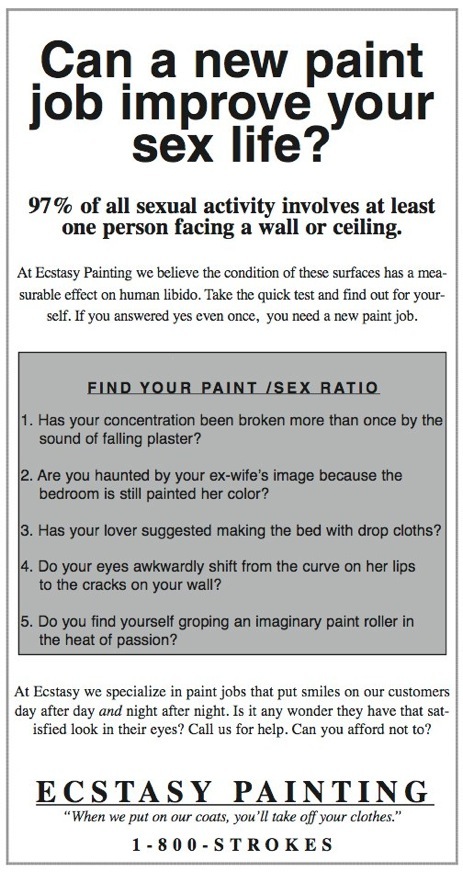
To request an estimate by email, click here.
by HMICHAEL | Apr 5, 2014 | Ideas & Concepts, Words Etc |
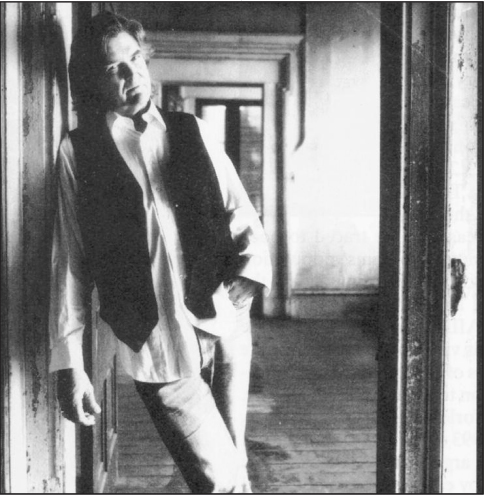
Click for feature story.
In order to successfully complete the Certificate Program for Desktop Publishing at CUNY in New York, I had to prove proficiency in the layout skills I was taught. I chose to create a magazine column layout with a feature story and images. The exam did not call for real text. Dummy text was acceptable, but I couldn’t bring myself to leave it there. I decided to write an entire fictional piece to be the host home for my layout presentation. Images, text, magazine title, sidebars, all fictionally created. Needless to say, the writing required far more work, than the design. Of course, I got an A!.;)
PS: All the images were culled from random locations and not used with permission. I apologize to anyone who felt exploited. In fact, I know the man on the cover of my story was/is a famous singer songwriter. That’s an album cover of his. The image of him was so perfect for my storyline, I had no choice but to use it. I wish I could remember his name. Please let me know if you recognize him. Its been driving me crazy. Thank you! 😉
by HMICHAEL | Mar 23, 2014 | Family, Life & Timing, Politics |
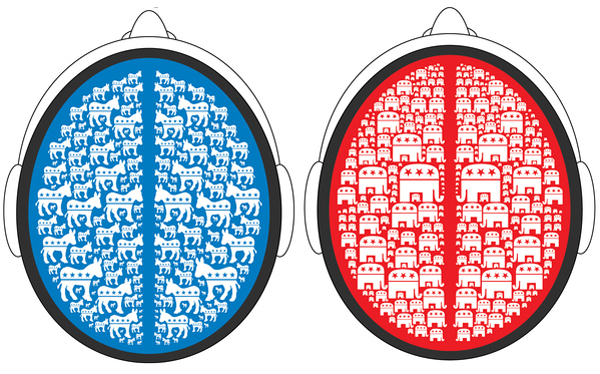
In 2004, mid way through the Bush v Gore Presidential campaign, my sister and I started feeling uncomfortable with each other. It actually included her husband too, but he didn’t disturb me as much. It was Cindy who bothered me the most. Because, well, she was/is my sister. My twin sister.
We grew up in a troubled household of my feuding parents, each of them taking turns at spiteful, and irrevocably family damaging behavior. Cindy and I had our differences in personality to be sure. I knew deep down it had less to do with our tumultuous family life than I thought it once did. We fought about stupid things that adolescents fight about. Toys, TV, territory, familial attention, love.
But, still, we had a thread of similarity, familiarity, and kinship. The things that have been written ad nauseum about twins. Fraternal or identical. After all, unless you are separated at birth, your mere identical ages, being born of the same parents, at the exact (more or less) moment in time, connect you in an indisputably unique way.
Life changes all of us as time goes. Excepting the deliberate, and quite frankly, strange actions of some twins who purposefully live life as though they were one, its impossible for any two individuals to experience life the same way.
Somewhere along the line, seemingly around the 2004 campaign, my sister and I charted divergent paths in our outlooks on politics, if not life. We were raised in a liberal, democratic home. Left middle at best. I stayed that way, albeit more cynical and disappointed. Cindy did not. In 2004 it changed for her. I don’t know how it bubbled up, whether coming from her husband, who also abandoned his family’s liberal roots, her neighbors, the region she lived in, or the pollution from Fox News she surrendered to as media pasttime of choice, she grew into a vocal force that was never part of who she was in the forty five plus years prior. It was the damnedest thing.
The ten years since past has dimmed much of the memory of our conflicts during those years, but much is still there on her side. I have forgiven her of all of it, if that’s the right choice of words, but the lasting effect, on me at least, is sadness that we have drifted so far apart because of, what should be a side story to who we are as human beings, brother and sister, and family.
I have heard this is a story played out many times among friends and families since, and after that campaign. Its a reflection of what has divided our country in very bleak ways. The article below tries to makes some sense of it intellectually, perhaps without actionary vision many of us might be craving for to solve this problem. Either way, it does help to read things like this, to encourage me that patient, analytic observance of human behavior is still a big part of understanding ourselves.
By WILLIAM SALETAN
THE RIGHTEOUS MIND
Why Good People Are Divided by Politics and Religion
By Jonathan Haidt
Illustrated. 419 pp. Pantheon Books. $28.95.
You’re smart. You’re liberal. You’re well informed. You think conservatives are narrow-minded. You can’t understand why working-class Americans vote Republican. You figure they’re being duped. You’re wrong.
This isn’t an accusation from the right. It’s a friendly warning from Jonathan Haidt, a social psychologist at the University of Virginia who, until 2009, considered himself a partisan liberal. In “The Righteous Mind,” Haidt seeks to enrich liberalism, and political discourse generally, with a deeper awareness of human nature. Like other psychologists who have ventured into political coaching, such as George Lakoff and Drew Westen, Haidt argues that people are fundamentally intuitive, not rational. If you want to persuade others, you have to appeal to their sentiments. But Haidt is looking for more than victory. He’s looking for wisdom. That’s what makes “The Righteous Mind” well worth reading. Politics isn’t just about manipulating people who disagree with you. It’s about learning from them.
Haidt seems to delight in mischief. Drawing on ethnography, evolutionary theory and experimental psychology, he sets out to trash the modern faith in reason. In Haidt’s retelling, all the fools, foils and villains of intellectual history are recast as heroes. David Hume, the Scottish philosopher who notoriously said reason was fit only to be “the slave of the passions,” was largely correct. E. O. Wilson, the ecologist who was branded a fascist for stressing the biological origins of human behavior, has been vindicated by the study of moral emotions. Even Glaucon, the cynic in Plato’s “Republic” who told Socrates that people would behave ethically only if they thought they were being watched, was “the guy who got it right.”
To the question many people ask about politics — Why doesn’t the other side listen to reason? — Haidt replies: We were never designed to listen to reason. When you ask people moral questions, time their responses and scan their brains, their answers and brain activation patterns indicate that they reach conclusions quickly and produce reasons later only to justify what they’ve decided. The funniest and most painful illustrations are Haidt’s transcripts of interviews about bizarre scenarios. Is it wrong to have sex with a dead chicken? How about with your sister? Is it O.K. to defecate in a urinal? If your dog dies, why not eat it? Under interrogation, most subjects in psychology experiments agree these things are wrong. But none can explain why.
The problem isn’t that people don’t reason. They do reason. But their arguments aim to support their conclusions, not yours. Reason doesn’t work like a judge or teacher, impartially weighing evidence or guiding us to wisdom. It works more like a lawyer or press secretary, justifying our acts and judgments to others. Haidt shows, for example, how subjects relentlessly marshal arguments for the incest taboo, no matter how thoroughly an interrogator demolishes these arguments.
To explain this persistence, Haidt invokes an evolutionary hypothesis: We compete for social status, and the key advantage in this struggle is the ability to influence others. Reason, in this view, evolved to help us spin, not to help us learn. So if you want to change people’s minds, Haidt concludes, don’t appeal to their reason. Appeal to reason’s boss: the underlying moral intuitions whose conclusions reason defends.
Haidt’s account of reason is a bit too simple — his whole book, after all, is a deployment of reason to advance learning — and his advice sounds cynical. But set aside those objections for now, and go with him. If you follow Haidt through the tunnel of cynicism, you’ll find that what he’s really after is enlightenment. He wants to open your mind to the moral intuitions of other people.
In the West, we think morality is all about harm, rights, fairness and consent. Does the guy own the chicken? Is the dog already dead? Is the sister of legal age? But step outside your neighborhood or your country, and you’ll discover that your perspective is highly anomalous. Haidt has read ethnographies, traveled the world and surveyed tens of thousands of people online. He and his colleagues have compiled a catalog of six fundamental ideas that commonly undergird moral systems: care, fairness, liberty, loyalty, authority and sanctity. Alongside these principles, he has found related themes that carry moral weight: divinity, community, hierarchy, tradition, sin and degradation.
The worldviews Haidt discusses may differ from yours. They don’t start with the individual. They start with the group or the cosmic order. They exalt families, armies and communities. They assume that people should be treated differently according to social role or status — elders should be honored, subordinates should be protected. They suppress forms of self-expression that might weaken the social fabric. They assume interdependence, not autonomy. They prize order, not equality.
These moral systems aren’t ignorant or backward. Haidt argues that they’re common in history and across the globe because they fit human nature. He compares them to cuisines. We acquire morality the same way we acquire food preferences: we start with what we’re given. If it tastes good, we stick with it. If it doesn’t, we reject it. People accept God, authority and karma because these ideas suit their moral taste buds. Haidt points to research showing that people punish cheaters, accept many hierarchies and don’t support equal distribution of benefits when contributions are unequal.
You don’t have to go abroad to see these ideas. You can find them in the Republican Party. Social conservatives see welfare and feminism as threats to responsibility and family stability. The Tea Party hates redistribution because it interferes with letting people reap what they earn. Faith, patriotism, valor, chastity, law and order — these Republican themes touch all six moral foundations, whereas Democrats, in Haidt’s analysis, focus almost entirely on care and fighting oppression. This is Haidt’s startling message to the left: When it comes to morality, conservatives are more broad-minded than liberals. They serve a more varied diet.
This is where Haidt diverges from other psychologists who have analyzed the left’s electoral failures. The usual argument of these psycho-pundits is that conservative politicians manipulate voters’ neural roots — playing on our craving for authority, for example — to trick people into voting against their interests. But Haidt treats electoral success as a kind of evolutionary fitness test. He figures that if voters like Republican messages, there’s something in Republican messages worth liking. He chides psychologists who try to “explain away” conservatism, treating it as a pathology. Conservatism thrives because it fits how people think, and that’s what validates it. Workers who vote Republican aren’t fools. In Haidt’s words, they’re “voting for their moralinterests.”
One of these interests is moral capital — norms, practices and institutions, like religion and family values, that facilitate cooperation by constraining individualism. Toward this end, Haidt applauds the left for regulating corporate greed. But he worries that in other ways, liberals dissolve moral capital too recklessly. Welfare programs that substitute public aid for spousal and parental support undermine the ecology of the family. Education policies that let students sue teachers erode classroom authority. Multicultural education weakens the cultural glue of assimilation. Haidt agrees that old ways must sometimes be re-examined and changed. He just wants liberals to proceed with caution and protect the social pillars sustained by tradition.
Another aspect of human nature that conservatives understand better than liberals, according to Haidt, is parochial altruism, the inclination to care more about members of your group — particularly those who have made sacrifices for it —than about outsiders. Saving Darfur, submitting to the United Nations and paying taxes to educate children in another state may be noble, but they aren’t natural. What’s natural is giving to your church, helping your P.T.A. and rallying together as Americans against a foreign threat.
How far should liberals go toward incorporating these principles? Haidt says the shift has to be more than symbolic, but he doesn’t lay out a specific policy agenda. Instead, he highlights broad areas of culture and politics — family and assimilation, for example — on which liberals should consider compromise. He urges conservatives to entertain liberal ideas in the same way. The purpose of such compromises isn’t just to win elections. It’s to make society and government fit human nature.
The hardest part, Haidt finds, is getting liberals to open their minds. Anecdotally, he reports that when he talks about authority, loyalty and sanctity, many people in the audience spurn these ideas as the seeds of racism, sexism and homophobia. And in a survey of 2,000 Americans, Haidt found that self-described liberals, especially those who called themselves “very liberal,” were worse at predicting the moral judgments of moderates and conservatives than moderates and conservatives were at predicting the moral judgments of liberals. Liberals don’t understand conservative values. And they can’t recognize this failing, because they’re so convinced of their rationality, open-mindedness and enlightenment.
Haidt isn’t just scolding liberals, however. He sees the left and right as yin and yang, each contributing insights to which the other should listen. In his view, for instance, liberals can teach conservatives to recognize and constrain predation by entrenched interests. Haidt believes in the power of reason, but the reasoning has to be interactive. It has to be other people’s reason engaging yours. We’re lousy at challenging our own beliefs, but we’re good at challenging each other’s. Haidt compares us to neurons in a giant brain, capable of “producing good reasoning as an emergent property of the social system.”
Our task, then, is to organize society so that reason and intuition interact in healthy ways. Haidt’s research suggests several broad guidelines. First, we need to help citizens develop sympathetic relationships so that they seek to understand one another instead of using reason to parry opposing views. Second, we need to create time for contemplation. Research shows that two minutes of reflection on a good argument can change a person’s mind. Third, we need to break up our ideological segregation. From 1976 to 2008, the proportion of Americans living in highly partisan counties increased from 27 percent to 48 percent. The Internet exacerbates this problem by helping each user find evidence that supports his views.
How can we achieve these goals? Haidt offers a Web site, civilpolitics.org, on which he and his colleagues have listed steps that might help. One is holding open primaries so that people outside each party’s base can vote to nominate moderate candidates. Another is instant runoffs, so that candidates will benefit from broadening their appeal. A third idea is to alter redistricting so that parties are less able to gerrymander partisan congressional districts. Haidt also wants members of Congress to go back to the old practice of moving their families to Washington, so that they socialize with one another and build a friendly basis on which to cooperate.
Many of Haidt’s proposals are vague, insufficient or hard to implement. And that’s O.K. He just wants to start a conversation about integrating a better understanding of human nature — our sentiments, sociality and morality — into the ways we debate and govern ourselves. At this, he succeeds. It’s a landmark contribution to humanity’s understanding of itself.
But to whom is Haidt directing his advice? If intuitions are unreflective, and if reason is self-serving, then what part of us does he expect to regulate and orchestrate these faculties? This is the unspoken tension in Haidt’s book. As a scientist, he takes a passive, empirical view of human nature. He describes us as we have been, expecting no more. Based on evolution, he argues, universal love is implausible: “Parochial love . . . amplified by similarity” and a “sense of shared fate . . . may be the most we can accomplish.” But as an author and advocate, Haidt speaks to us rationally and universally, as though we’re capable of something greater. He seems unable to help himself, as though it’s in his nature to call on our capacity for reason and our sense of common humanity — and in our nature to understand it.
You don’t have to believe in God to see this higher capacity as part of our nature. You just have to believe in evolution. Evolution itself has evolved: as humans became increasingly social, the struggle for survival, mating and progeny depended less on physical abilities and more on social abilities. In this way, a faculty produced by evolution — sociality — became the new engine of evolution. Why can’t reason do the same thing? Why can’t it emerge from its evolutionary origins as a spin doctor to become the new medium in which humans compete, cooperate and advance the fitness of their communities? Isn’t that what we see all around us? Look at the global spread of media, debate and democracy.
Haidt is part of this process. He thinks he’s just articulating evolution. But in effect, he’s also trying to fix it. Traits we evolved in a dispersed world, like tribalism and righteousness, have become dangerously maladaptive in an era of rapid globalization. A pure scientist would let us purge these traits from the gene pool by fighting and killing one another. But Haidt wants to spare us this fate. He seeks a world in which “fewer people believe that righteous ends justify violent means.” To achieve this goal, he asks us to understand and overcome our instincts. He appeals to a power capable of circumspection, reflection and reform.
If we can harness that power — wisdom — our substantive project will be to reconcile our national and international differences. Is income inequality immoral? Should government favor religion? Can we tolerate cultures of female subjugation? And how far should we trust our instincts? Should people who find homosexuality repugnant overcome that reaction?
Haidt’s faith in moral taste receptors may not survive this scrutiny. Our taste for sanctity or authority, like our taste for sugar, could turn out to be a dangerous relic. But Haidt is right that we must learn what we have been, even if our nature is to transcend it.
William Saletan, Slate’s national correspondent, is the author of “Bearing Right: How Conservatives Won the Abortion War.”

by HMICHAEL | Mar 22, 2014 | Love and Romance, Words Etc |


click

click

by HMICHAEL | Mar 21, 2014 | Food & Drink, Words Etc |


click for menu
(Just read it…all. I promise it will grow on you.)
by HMICHAEL | Mar 2, 2014 | Ideas & Concepts, Technology/Internet |
I’ve gone back and forth on what to do with blog technology.
I waffled for years among a myriad of choices and creative approaches between building a site with higher social or communication purpose, and building something of a more self absorbed level. These two routes, while full of colorfully different approaches from the 152 million? blog practitioners, summarize the bulk of blogs. Slightly more expansive, and comically harsh is Roz Chast’s perception.
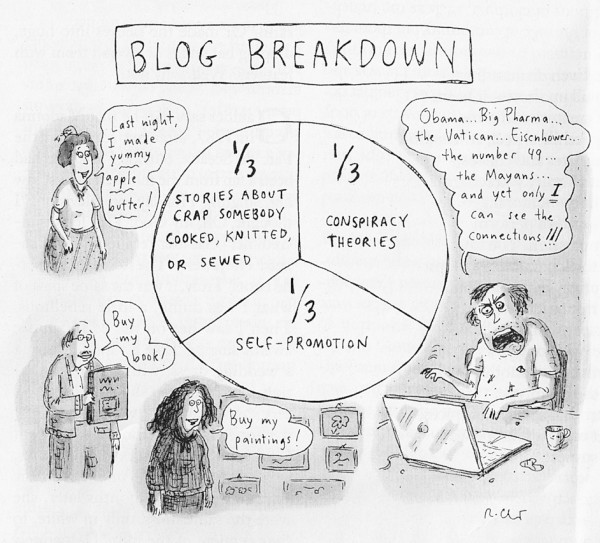
I lump her entire pie chart under the self absorption category, but I do add in a second category for the altruistic, teaching, and helping nature of other blog sites that also (thankfully) exist online. I admire the people behind those sites. Those are the blogs that can make a difference, big and small, in people’s lives. My site is not, directly, one of those types of sites. 😉 Although I do try and bring worthy news to visitors, this site also includes my personal contributions of varied creative forays, of no determined value to anyone who comes upon them. All of this, one way or the other, is born of my own need to broadcast something of myself into the webosphere. So maybe I’m a little bit of both categories. At least, as of this writing. 😉
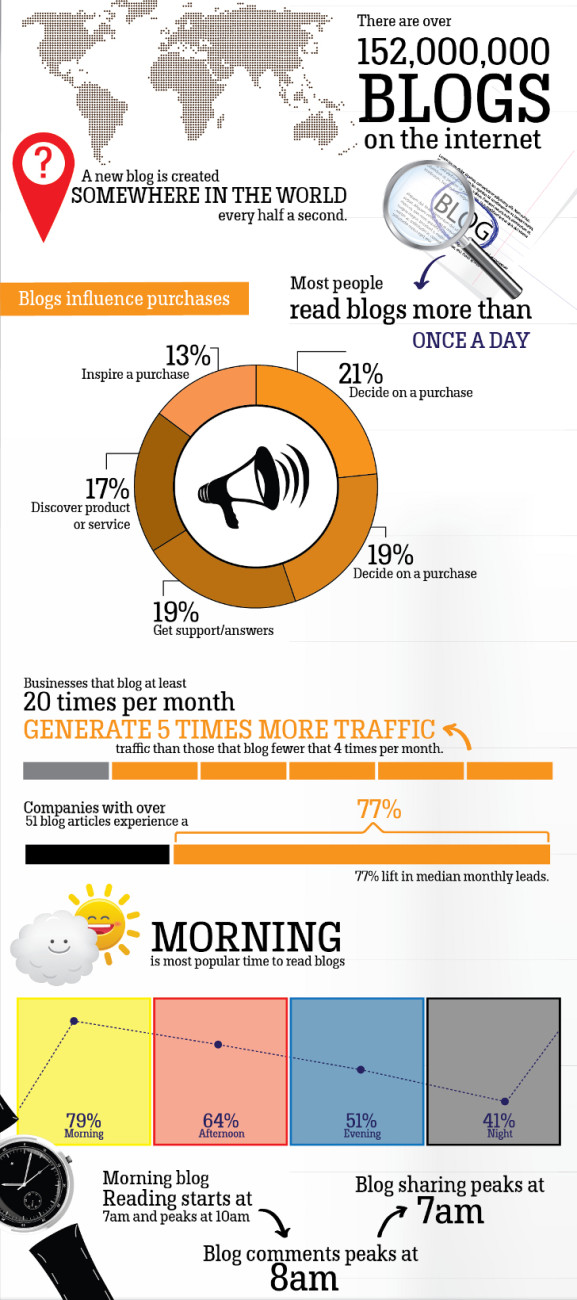
I’ve been trying to get more serious and purposeful over the years, since I started doing this. After all, ranting about tailgaters, crooked politicians, and greedy corporations, gets old quick. Its something one needs to keep in check. If for no other reason, than to preserve sanity.
I’ve grown self conscious of taking up valuable bandwidth without a more decisive direction. Maybe, I’ll sell something, or “try to.” Maybe I’ll find a voice that gives me, and my audience, deeper connections with the content.
Thank you for visiting, and deciding your time is worth any time on my site.
For another side, please visit my work site, where you can deliberate any number of ideas on how to hire me. I could use the money to pay for car repairs. Thanks. 😉
by HMICHAEL | Feb 3, 2014 | Life & Timing |
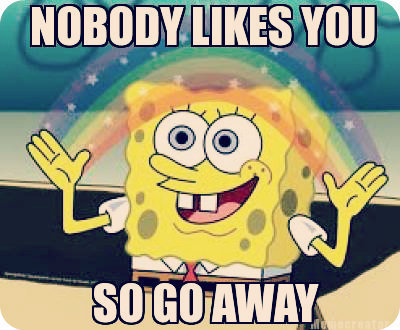
What does it mean to be in sync? Particularly with another person.
I’ve been thinking about how hard it is to connect with certain friends by phone. Just to say hello. For these particular friends, it’s not easy at all.
We often call each other’s voice mails, leaving these tiresome “Sorry I missed you” messages. It really gets old. I’ve started just hanging up and not bothering with the message anymore. Thinking they see my name on the calls received or ID, and let them figure the rest. After all, I have very few “urgent calls” that need to be explained in a long winded message that wouldn’t be served better in real time with a real person listening as we actually converse. I mean, isn’t that the point behind the phone call to begin? Isn’t that what communication is all about?
Hmmm. Well, maybe it isn’t anymore. Maybe people nowadays, or, shall I say certain demographic groups don’t communicate that way anymore.
We’ve all read and ruminated about the sound bite snippet culture that seems to overtake old norms of passing information, ideas, and just plain greetings to one another nowadays. Everything is either a facebook post, a text message line or two, or a clipped voice mail. Even those of us in older generations who remember the times of endless phone calls, late night rapathons and U.S. Mail, are now finding it hard to connect to one another.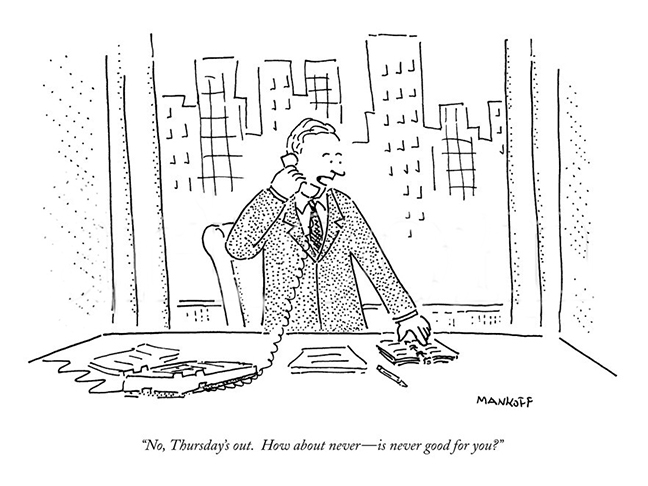
Lots of us lose contact because we can’t catch up without actually making a plane reservation, driving to the destination home, or showing up by surprise. What’s happening? Is it just that so many of us are driven to do our thing so much more heavily now than before? Are we monopolized by families, and more locally accessible friends, distractions, and commitments, than our once close friends who may have moved out of town? And then, why is that a difference maker now, when the phone has been around a hundred and forty years? Why does no one want to talk on the phone anymore? Or, at best, only when it suits their timing perfectly?
Sometimes, I ask myself, is it simply a matter a timing? Of being in sync? Of both people being in some sort of serendipitous space where each of them has just the right amount of time to commit and invest at just the same time on a particular day? If that were the case, then the problem is different. Then, its about being in sync with someone. Could it be that they and I are just not made for good timing? Just for a phone call. Has this happened to you?
What do you sync?
by HMICHAEL | Jan 30, 2014 | Driving & Transporation |
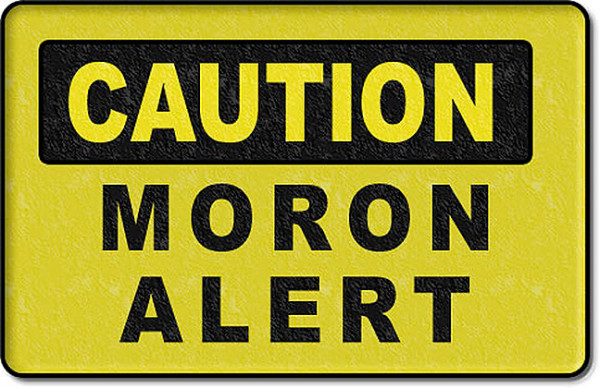
For the love of god, will you people who tailgate please get some psychological help.
For the record, I am not a slow, crawling driver. Anything but, actually. I’ve had my share of speeding tickets, and beieve 55mph is a ridiculously slow speed limit on most highways of this country. 65mph can be found on some highways across the country, but not nearly enough, Furthermore, even on non busy non highway roads, anything below 50mph tests my patience of the law. Don’t even get me started on the absurd 25mph zones that are deliberately speed traps set in place to fund city and precinct holiday funds.
I don’t suffer from road rage. Really. I swear I don’t. Does that mean I don’t, or can’t get upset at a certain type of driver? Hell no! I have major animosity towards a very particular kind of driver. The tailgater. More specifically, the tailgater behind me at 75mph, who cant hold his dick for thirty seconds while I wait for a moment to pull into the right lane so he can get to whatever it is that is giving his life the deep meaning he has to experience to act like a jerk. One thing I’ve seen often is many of these high speed left lane tailgaters move back over into the right lane in 1/4 mile, and exit off the highway, just after they pass me! Seriously. Are you kidding me?
I’m on the road literally putting my life on the line every time I put my foot on the gas pedal and enter a traffic flow. So are all of you. Most of us know what kind of drivers we are. Some of us are fairly accurate in our self assessments. Others, less so. Unfortunately, there is a third group of drivers that are living in some alternate plane of perception. They do not have any grasp on any reality of what kind of drivers they are. The most deficient of that group don’t care what kind of driver they are. They are concerned with one thing, and one thing only. To get from one point to another. Everybody else, get out of their way, or…or else!
Do I have road rage? Not the kind that forces me into a car chase fiasco after someone who cut me off. No. I don’t have that kind of road rage. I have road discouragement. Road sadness. Road disillusionment. Not life threatening, but still, bad news for my sense of peace on the nations roadways. And that’s a tragic state to be in.
BUMPER STICKER IDEAS:
- Hello Asshole
- Please hit me. I need my rear bumper repaired.
- Guess who’s insurance pays for you hitting me from behind?
- If I step on the brakes, and you hit me. Its your fault.
- If you can read this, you are a menace. Get off the roads.
- Get off my ass, you stupid, fu**ing, non driving, jackass!
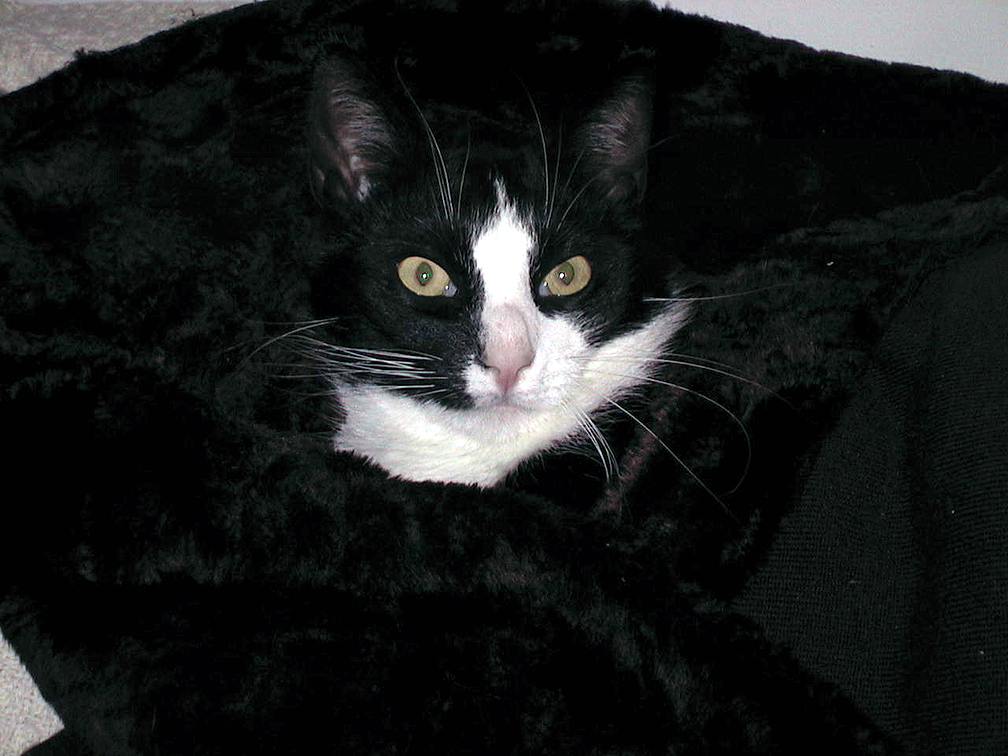
by HMICHAEL | Jan 29, 2014 | Animals, Pooky |
Cleaning the litter box is not what it used to be. Does anybody know what I mean?
Pooky is fifteen. That’s a long time cleaning up someone’s poop every day. I mean, really. Cleaning up someone’s poop with a scoop that puts your hands only inches away from a substance that is not what any of us would normally want within twenty feet, or at least in a drain pipe somewhere.
I’m just kinda sick o’ it.
I’m sick of smelling it every morning. I’m sick of seeing the small, medium, and large clumps of peed on clay and sand speckled poop greeting me every morning just before, or (no better) after my coffee.
It’s something existential now. Wouldn’t you know?
It’s something that takes my head and mind to a very deep, dark, and dank place. A place where I think of death and darkness. Desolation. Despair. Depression. Dungeons…What?!!
Ok, there’s no dungeons. I got carried away there.
Listen…the litter cleaning sucks. Okay? So what if the dungeons aren’t part of it. I exaggerated. Okay. Big deal. Doesn’t matter. I hate litter cleaning more than ever, and I’m not sure what its doing to me.
It’s not Pooky’s fault. I could’ve trained him to use the toilet, like any responsible half wit cat owner would’ve done. But, I didn’t, and now I have to clean up his poop every day. So, really, its my fault. Kinda.
Still. Still. He’s worth it.
UPDATE: In October of 2016, Pooky passed away at age 18. For any of you who know me, you know how much I loved Pooky, and what he meant to me. He was well worth the litter cleaning, and much much more. RIP, my sweet boy.
by HMICHAEL | Jan 28, 2014 | Artwork |
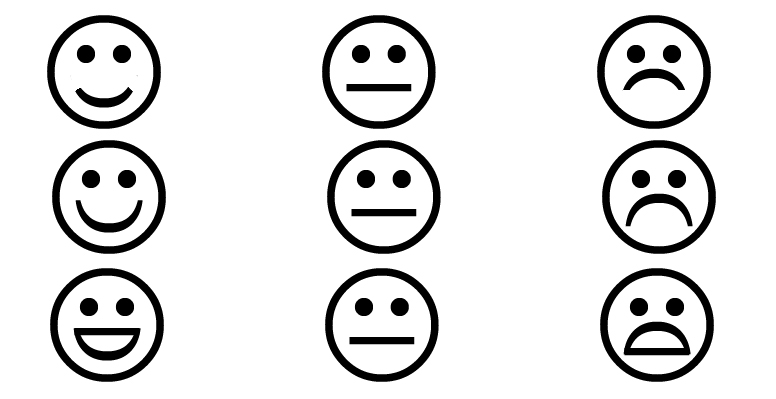

by HMICHAEL | Jan 26, 2014 | Food & Drink |
 Here is an excellent illustrated interactive time line produced by Nicholas Blechman of the New York Times, about what has, and is going on in the world of EVOO. Personally, I am suspicious of many so called “high end” food products’ origins and quality. Our own U.S. Dept of Agriculture and FDA are so full of inspection and food safety shortfalls, that it is not to hard to imagine that other countries suffer from the same oversights, corruption, graft, and deeply rooted criminal enterprise. Sometimes I think those of use who live through food poisonings, tainted food, and allergens, are just plain lucky.
Here is an excellent illustrated interactive time line produced by Nicholas Blechman of the New York Times, about what has, and is going on in the world of EVOO. Personally, I am suspicious of many so called “high end” food products’ origins and quality. Our own U.S. Dept of Agriculture and FDA are so full of inspection and food safety shortfalls, that it is not to hard to imagine that other countries suffer from the same oversights, corruption, graft, and deeply rooted criminal enterprise. Sometimes I think those of use who live through food poisonings, tainted food, and allergens, are just plain lucky.
The story put forth here shows some poetic justice of sorts, but really, controlling the quality of imported olive oil, let alone all the other foods we ingest every day, is just the tip of a huge iceberg of risk we face as trusting consumers when we go grocery shopping.
Article Link: https://www.nytimes.com/interactive/2014/01/24/opinion/food-chains-extra-virgin-suicide.html
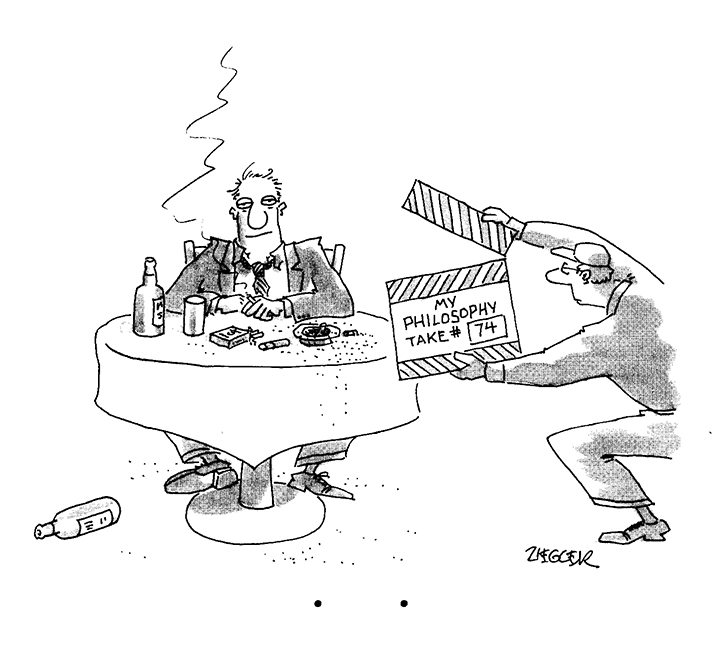
by HMICHAEL | Dec 18, 2013 | Cartoons |
by HMICHAEL | Sep 20, 2013 | Artwork |
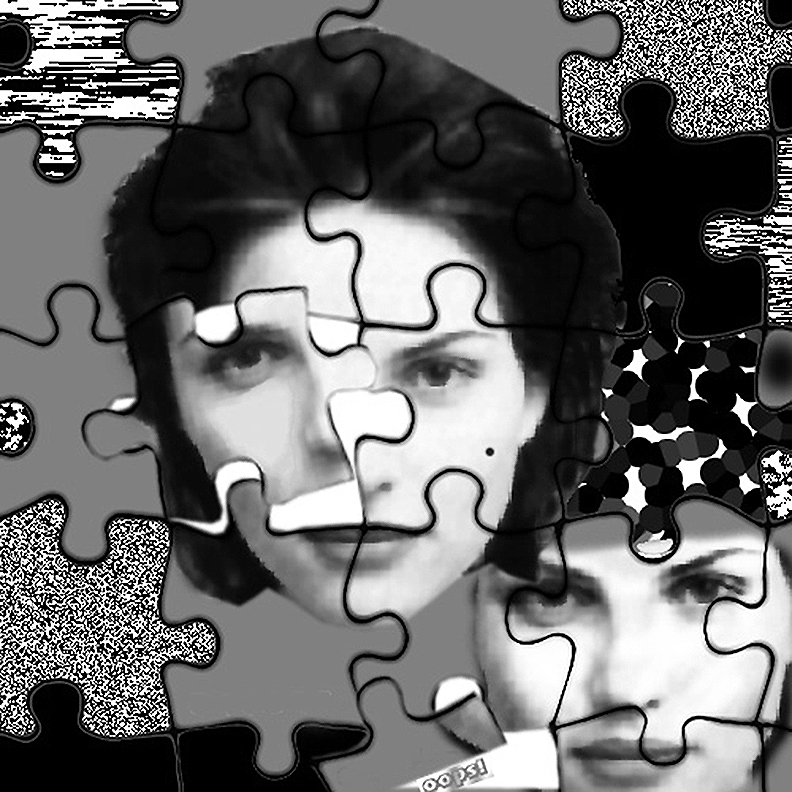
by HMICHAEL | Feb 8, 2013 | Music, Words Etc |
 “Oh the weather outside is frightful,
“Oh the weather outside is frightful,
But the fire is so delightful,
And since we’ve no place to go,
Let It Snow! Let It Snow! Let It Snow!
My Ass! Get that shit outta here!
Get that motherfucking white dirt black slag shit crap outta my face. Fuck this!!
It doesn’t show signs of stopping,
And I’ve bought some corn for popping,
The lights are turned way down low,
Let It Snow! Let It Snow! Let It Snow!
No! Noooooo! I hate it! It sucks!! No!! DO NOT LET IT SNOW! I REPEAT.
DO NOT LET IT SNOW!! SHIT!!! AGAIN??! FUCK!!
The fire is slowly dying,
And, my dear, we’re still good-bying,
But as long as you love me so,
Let It Snow! Let It Snow! Let It Snow!
Fuck that!! I been digging outta this frozen shit for weeks. My feet are cold. My hands are raw. And my car’s covered in ice, AGAIN!
Hey snow. Eat me!!
And fuck you!
by HMICHAEL | Nov 23, 2012 | Fotocomix, Humor & Amusement, Pooky |
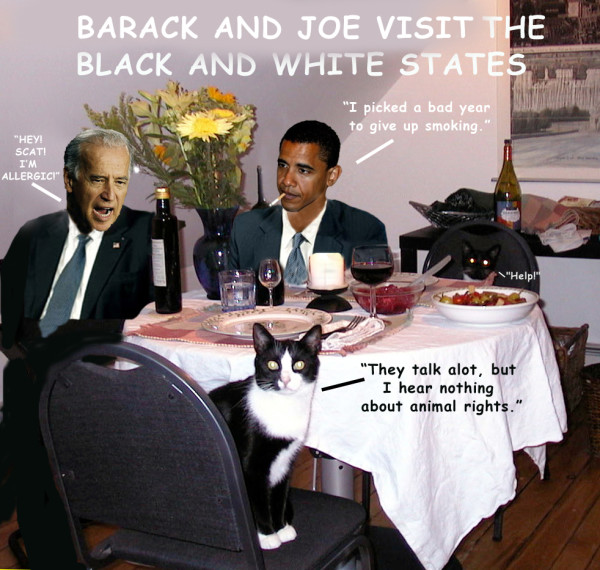

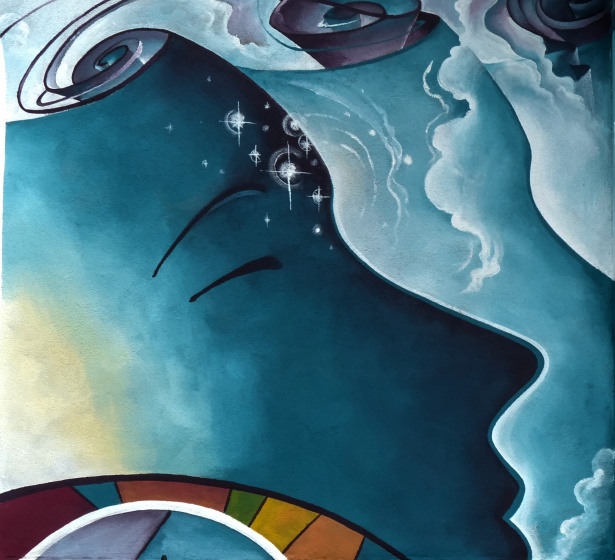
by HMICHAEL | Aug 23, 2012 | Love and Romance, Words Etc |

Good Morning Mystery Woman,
Tis, I. The man who writes to your silent voice. The man who loves your bee-stung upper lip, your tousled hair, your enigmatic gaze. Yes, once again, I venture forth into the land of real and illusion, probing for life from the digital darkness. Wondering how long it will take to discover the truth behind your words and your image.
Yes! Tis I! The man who himself lives in a world of real and illusion. Each day choosing a path that leads him towards you or away from you.
Yes! Tis I! The man who fosters the faith and resolve to believe in your existence. Not only for himself, but for others around the world who strive like he does to discover diamonds in stone, gold in mud, silver in the clouds, pearls in the sea, flowers in weeds…
YES! YES! TIS I!
I, who waits. I, who wonders. What will happen to me? Will I survive the emotional turbulence that has yet to visit my heart when I realize you are not who you present. You are not the engagingly attractive visage with the eyes that look beyond those who stand before you. You are someone else…something else.
My time runs as the sand flows down the hourglass. I can not linger in your world much longer, lest I turn to dust and waste away.
I fire one last flare hoping you will see.
To come out from the bush and say hello to me.

by HMICHAEL | Aug 6, 2010 | Words Etc |

These words…
I see what I don’t have.
I have what I don’t see.
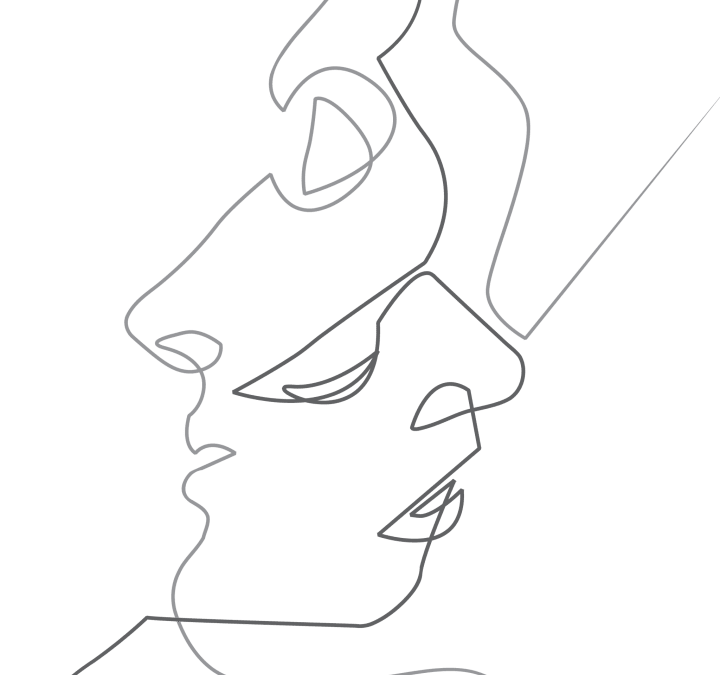
by HMICHAEL | Feb 28, 2010 | Words Etc |

I’ll see a face and
my mind will float away
to a dream place
with a soul
I have been waiting
to appear in my life,
a soul to share
in this world
of ideas, hopes…





































